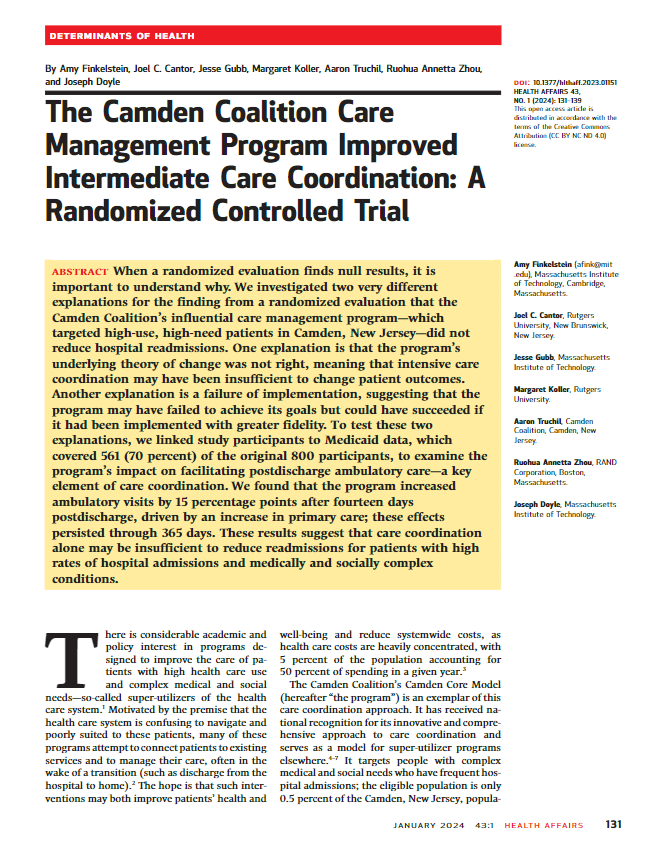Headline
The reanalysis of a randomized control trial evaluating the effectiveness of a care management program finds increased linkages to ambulatory care.
Context
In 2020, a randomized control trial of a well-known complex care management program, Camden Coalition’s Camden Core Model, found the program did not reduce patients’ hospital readmission rates. Subsequent debate included suggestions that care coordination to existing resources is insufficient for the patients with high use and complex health and social needs, and that better application of the model was needed in order to achieve program goals. This study examines if: (1) the program’s underlying assumptions about how to reduce hospital readmissions for patients with the greatest medical and social needs is flawed; and (2) the program would have succeeded if it had been applied with greater fidelity.
Findings
The authors used Medicaid data for 561 of the original 800 trial participants to examine the program's impact on post-discharge ambulatory office-based visits, including primary and specialty care, and emergency department visits that did not result in hospital admission during the trial period. The study found that program participation significantly increased ambulatory care visits post-hospital discharge — 42% of patients met with a provider within two-weeks of discharge and 84% after six months, compared to 27% and 73%, respectively, in the control group. There was no decrease in emergency department visits. Additionally, the authors observed that the program’s intermediate goals were not achieved, such as more than half of patients did not receive a visit from their care team with 14 day of hospital discharge.
Takeaways
The authors conclude that care coordination models for people with complex needs and very high health care service utilization — even when the models are achieving intermediate implementation goals — may be more effective at reducing hospital readmission if supplemented with nonclinical supports, such as housing and legal services.

